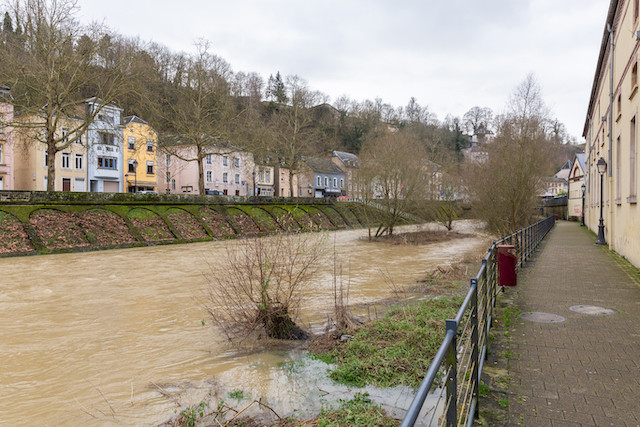“The soil was dried out to the deepest layers; it was baked,” said Brigitte Lambert, who oversees ground and drinking water supplies. “Last spring was dry, July to October was very dry.”
The groundwater recharge can only begin when all the top layers of soil are saturated, Lambert said, welcoming the snow Luxembourg saw in December and January as it melts slowly, sinking into the ground.
While it might be hard to recall the grand duchy’s last sunny day, “the recharge this winter started roughly one month later than normally,” Lambert said, adding that it really only began in January.
Complicating matters further is that the vegetation-free period is getting shorter. “Vegetation keeps growing well into autumn and it’s warmer earlier in the spring, so vegetation starts growing sooner,” Lambert said. While the rain then benefits the plants, “for the groundwater it has zero impact.”
Lambert said it was too soon to estimate the outcome of this winter’s recharge. “But there is a risk that it will be below average,” she said, adding that more, steady rainfall would be good.
“For the groundwater, there’s never enough rain,” Lambert said. “As a person, I also don’t think it’s great when it’s constantly wet, but it’s important. It’s good that it's raining; it’s good that there was snow; but last year was much too dry.”
2020 was the hottest year on record in Luxembourg, since weather reporting began at the meteorological station in Findel. And while it was not the driest, it was marked by a “significant rainfall deficit,” according to Meteolux, the seventh year with too little rain in a row.
The government last summer warned the public to conserve water, saying they should not fill up swimming pools, wash cars or water lawns and gardens. “It’s always important to use water sustainably and conserve it. It’s precious and shouldn’t be wasted,” Lambert said, even when ongoing rain might make it seems plentiful.
